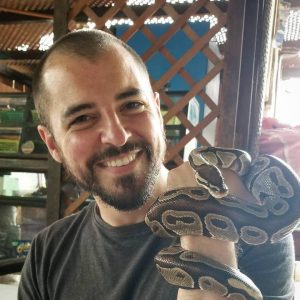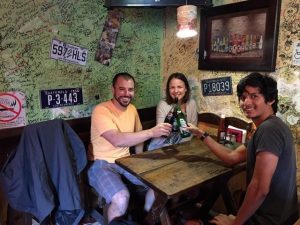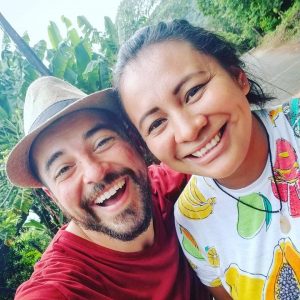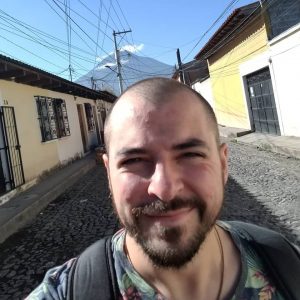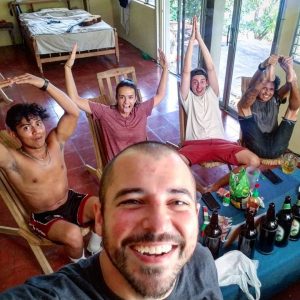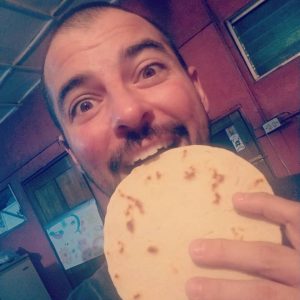In our October newsletter we published an interview with Brad Galo, EWB Detroit Chapter Vice President, about his upcoming plans to move to Central America. Two months later, we have an update on life in Nicaragua.
EWB-DETROIT: Let’s start with a quick refresher for anyone who missed the October Newsletter: What are you doing in Nicaragua?
BRAD GALO: This is part of a sabbatical I took from my job at Ford. For me, this is a time where I can invest in myself while increasing the amount of time I can spend investing in others through volunteering. I am really passionate about helping people to remove roadblocks on their road to success so they can become the best version of themselves.
EWB: And you’re volunteering at a nonprofit in Nicaragua?
BG: Yes, that’s right. Through my volunteer work with EWB, I have traveled to Nicaragua three times working with the local NGO here, Proyecto CocoMango.
EWB: What work are you doing with Proyecto CocoMango?
BG: Some of my responsibilities are as simple as working with the other volunteers to help create a menu for the week, collecting drinking water from a local well, or helping with the shopping, cooking, and cleaning. But most of my time goes to managing the CocoMango Facebook and Instagram pages, as well as well as helping the team manage and create content for our current fundraiser, which will help CocoMango send 31 students to high school this year. That’s what I’m most excited about at the moment.
EWB: Last time we talked you mentioned helping with teaching. Are you still planning to do that?
BG: Yes, definitely. I’ve already started teaching Spanish literacy with an adult in the community, which is a challenging but rewarding experience! I’ve also helped another adult learn some basic English phrases that he can use to talk to guests at the hostel where he works, and I’ve helped a student with her university English homework. I may also start teaching English to two other community members who work at another hostel here. We will also run some after-school activities for the students, but they are on summer break from school until February.
EWB: What is life like for you, living in Nicaragua?
BG: Life here is pretty chill, actually. There is a lot to do, but nothing happens quickly. Especially without being able to just call or message someone at any time, or jump in the car and drive somewhere, coordinating with other people becomes a lot more challenging. But, eventually, everything gets done! Outside of the work and volunteering aspect, the volunteer team here eats meals together, we play cards, go for a swim in the lake, or visit a local hostel to relax and have a few beers. We also play ultimate frisbee 1-2 times per week in Granada, which is fun.
EWB: How was the transition from life in the U.S. to life in Nicaragua?
BG: Actually not bad! I have visited this community in the past, so I knew some of what to expect. I also had a month of transition in Antigua, Guatemala before moving to Nicaragua, so I was able to get used to everyone around me speaking Spanish.
EWB: Was there anything that you found more challenging about your move, or about living in Nicaragua?
BG: Oh, of course! It’s frustrating in some cases being able to speak some Spanish, but not understanding a lot—it takes longer to do everything and there is still often some level of misunderstanding. That makes it more challenging to build relationships with people who only speak Spanish, too. On the location, Laguna de Apoyo is a beautiful spot…but it’s hot every day and there is no air conditioning. My fan has become one of my best friends! We also have to conserve water, as our non-drinking water is stored in a tank next to the house. We share a well and water pump with four other families, and “Water day”—the day we refill all of our tanks—is only about 1 day a week. This means that showers are done via pouring water over your head, or by bathing in the lake.
EWB: What is something that you want people to know about Nicaragua?
BG: There has been a lot of negative press about Nicaragua lately, but the reality here is similar to the reality of life anywhere else: bad things happen, but most of the people are kind, helpful, and are just trying to make a living and do the best they can for their family.
You can find more information on Proyecto CocoMango at www.proyectococomango.org. To see the latest from Brad on his travels, you can follow him on Instagram at @brad_thanimal or visit www.bradgalo.com/blog.
